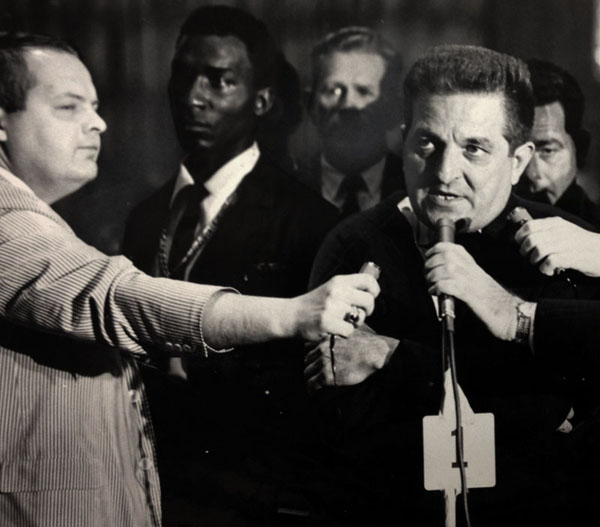The Union

The drivers requested a union meeting on May 19 to discuss whether they would ever agree to return to their shifts at night with change boxes. The local union membership decided that drivers should not have to carry change past 6:30 p.m. beginning on May 20. When the night drivers reported to work on May 20, the company would not allow them to operate the buses. By May 22 the transit commission’s attempt at mediation failed as drivers continued to refuse to carry change boxes, and the next day, Mayor Walter E. Washington announced the appointment of Monsignor George G. Higgins as the special mediator. Higgins recognized the bus safety dispute as a different mediation situation, “something in between a strike and a lockout,” as he described it, particularly because management-labor disputes often occurred over wages and benefits, so the safety and security issues created a different challenge for Higgins to mediate. After meeting with bus company and union officials on his first day as mediator on May 23, the drivers voted that night 734 to 568 to delay a decision for ten days on whether to refuse to carry change boxes during the day, which would have effectively halted bus operations. The union decided the drivers would continue to carry change on routes from 4:00 a.m. to 6:30 p.m. Although several hundred drivers departed the meeting early to prepare for shifts the next morning, nearly 2,000 attended. ATU Local 689 represented 3,500 drivers and mechanics of D.C. Transit Company and the West Virginia and Maryland Company. ATU president Elliott argued that halting daytime shifts would ultimately dissolve the public support he believed they had garnered, especially since the buses carried not only 120,000 commuters during the day but many of the school children as well.